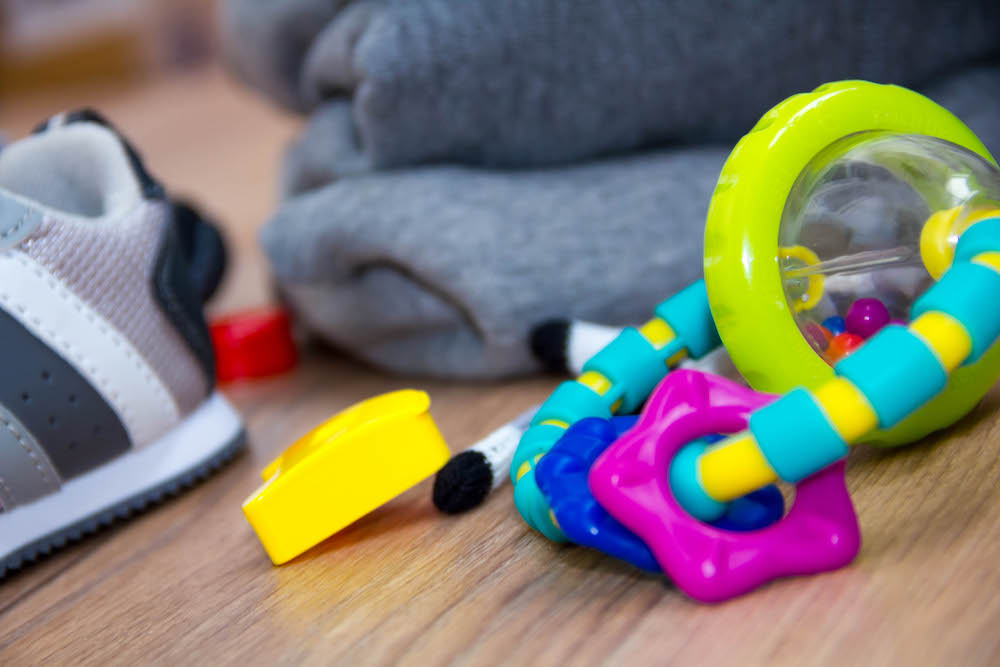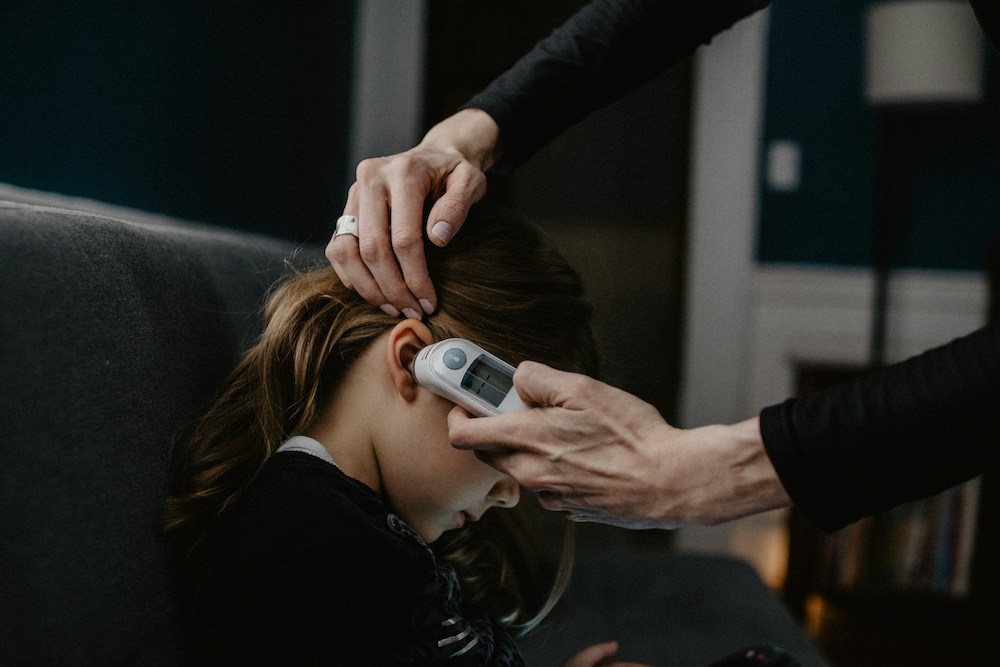It is that time of year! The common cold and the flu are both respiratory viruses that spread more frequently during the winter months of the year. There are many respiratory viruses that can cause a cold. Healthy children get about 6 colds a year. Being near a sick person, especially when they cough or sneeze, can cause children and adults to pick up the viruses from breathing in the droplets released. You can also get infected by touching objects and surfaces that contain the viruses and then touching your nose and mouth. Good sanitary and hygiene habits such as washing hands with soap and water for 20 seconds and wiping down surfaces with disinfectants are helpful practices to prevent becoming ill. For the flu, it’s important for your family to get the vaccine to prevent serious sickness and complications.
Typical symptoms of the common cold include a runny nose, sore throat, loss of appetite, constant sneezing and coughing, swollen glands and low-grade fever. These symptoms show up when your child has the flu as well. But with the flu, you might also see a sudden and high fever, a dry cough, chills, headaches, body aches, fatigue, nausea and vomiting, and diarrhea. Children with the flu usually feel sicker than they do with the common cold and the flu often lasts longer. Flu symptoms can also remain for at least a week. Colds are generally not serious. With a cold, about 5-10% of children will go on to develop another health problem caused by a bacteria such as a sinus infection or an ear infection. While there is no cure for the common cold or the flu, there are things you can do to help your child feel better. If your child is sick, make sure they’re getting plenty of rest and hydration. As congestion can be uncomfortable and leave kids feeling down, you can use a nasal spray with saline (salt water) to loosen and remove mucus. A cool mist humidifier is also effective for relieving congestion and making it easier for your child to breathe. Warm baths or sitting for 10-15 minutes in a steamy bathroom are helpful for clearing out congestion as well.
To help soothe a sore throat, you can mix some honey into water or herbal tea if your child is older than 1. It is not safe for babies under one year of age to consume any honey. Children between ages 1 and 5 can be given half a teaspoon. For ages 6 to 11, you can give one teaspoon, and for children over 12, you can give two. Cough drops can also be used as a last resort if your child is older than 6, but it’s important to avoid giving your child more cough drops than instructed on the product.
Fevers can occur to help your child’s body fight infections. But if they cause extreme discomfort, you can give your child an acetaminophen (Tylenol) or ibuprofen (Motrin or Advil). Be sure to follow the correct dosage based on your child’s age. For the acetaminophen dosage table, click here. And for the ibuprofen dosage table, click here.
Most cold and flu symptoms will go away on their own and home remedies will be enough to make children feel more comfortable. However, in certain circumstances, your child may need to see the pediatrician. Always call the doctor if your baby is under 3 months of age and has sick symptoms or you have a baby under one year with a fever. For any child older than 3 months, it is recommended to call the pediatrician if nasal congestion/mucus last more than 2 weeks, their cough lingers for 3 weeks or changes, they have ear pain, they have a fever that lasts longer than 3 days or sore throat that lasts longer than 5 days.
Trouble breathing, also known as respiratory distress, is a reason to see a doctor right away. These are some symptoms we worry about: struggling for each breath or shortness of breath, trouble speaking or crying due to difficulty breathing, ribs pulling in with each breath, noisy breathing such as wheezing, fast breathing, lips or face turn a blue color. Additional reasons to seek care right away are chest pain, severe muscle pain, extreme dehydration, or seizures. Keep in mind that risks for complications from the cold and flu are higher in children with chronic medical conditions such as asthma, diabetes, cancer, an immune system condition, or lung, heart, or kidney disease. If complications occur, please bring your child to the doctor.
If you have any concerns about your child’s sickness or fever, please contact our office.
Wishing everyone a healthy winter season!



